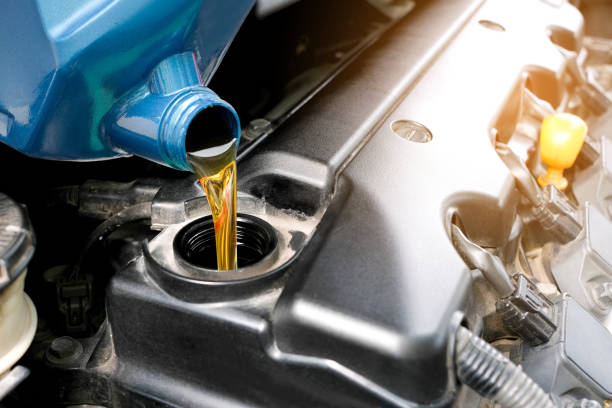May 13, 2024
Does synthetic oil break down with heat?
Yes, synthetic oil can break down with heat, but it is generally more resistant to thermal breakdown than conventional oil. Synthetic oils are designed to withstand higher temperatures and provide better protection for engines under extreme conditions. They typically have a higher thermal stability, meaning they can maintain their properties and performance over a broader range of temperatures.
However, like all lubricants, synthetic oil can eventually degrade when exposed to very high temperatures over extended periods. This breakdown can lead to the formation of sludge, varnish, and other deposits that can impair engine performance and protection. The specific temperature at which synthetic oil begins to break down can vary depending on the formulation and additives used by the manufacturer. Regular oil changes and using the appropriate type of oil for your vehicle can help ensure optimal performance and longevity.
Does engine oil transfer heat?
Yes, engine oil does transfer heat. One of the key functions of engine oil, in addition to lubricating engine components, is to help with heat dissipation. Here’s how it works:
- Heat Absorption: Engine oil absorbs heat generated by the moving parts within the engine. Friction between the engine’s moving parts creates a significant amount of heat, and the oil helps absorb this heat.
- Heat Transfer: Once the oil absorbs the heat, it circulates through the engine, carrying the heat away from the hot areas.
- Cooling: The oil then flows to cooler parts of the engine or through an oil cooler if the vehicle is equipped with one, where it can release the absorbed heat. This helps maintain an even temperature within the engine, preventing overheating of specific components.
By performing these functions, engine oil plays a crucial role in maintaining the engine’s temperature balance and ensuring its efficient operation.

Does coolant help with heat?
Yes, coolant helps with heat management in an engine. The primary functions of coolant are to:
- Absorb Heat: Coolant absorbs heat from the engine as it circulates through it. The engine generates a significant amount of heat during combustion, and coolant helps to absorb and carry this heat away from the engine components.
- Transfer Heat: After absorbing heat from the engine, the coolant circulates through the radiator, where the heat is transferred to the air outside the vehicle. This process helps to dissipate the heat and keep the engine at a safe operating temperature.
- Prevent Overheating: By effectively absorbing and transferring heat, coolant helps to prevent the engine from overheating. Overheating can cause serious damage to engine components and lead to engine failure.
- Protect Against Freezing: Coolant also has antifreeze properties, which prevent it from freezing in cold temperatures. This ensures that the coolant can continue to circulate and perform its heat management functions even in extremely cold conditions.
- Prevent Corrosion: Coolants often contain additives that protect the engine and cooling system from corrosion, rust, and scale buildup, which can impair the efficiency of heat transfer and lead to system damage.
Overall, coolant is essential for maintaining the engine’s temperature, preventing overheating, and ensuring the engine runs efficiently and reliably.
